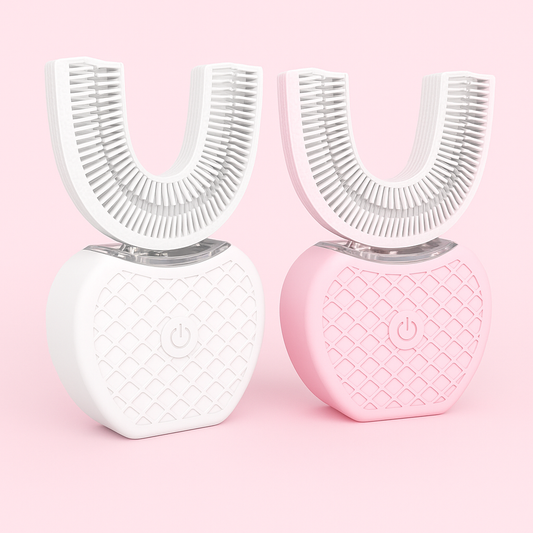Introduction
Oral health is a critical aspect of our overall well-being, playing a significant role in our daily lives, from eating to speaking and even social interactions. As we navigate through 2025, it’s essential to prioritize our dental hygiene and adopt practices that promote long-term oral health. Neglecting oral care can lead to various issues such as cavities, gum disease, and even more severe health conditions. To keep your smile bright and healthy, here are ten essential tips to help you achieve optimal oral health this year.
1. Brush Twice a Day
Brushing your teeth at least twice a day is fundamental to maintaining oral hygiene. It’s essential to use a fluoride toothpaste which helps to strengthen tooth enamel and prevent decay. Here are some tips for effective brushing:
- Brush for at least two minutes each time.
- Use a soft-bristled toothbrush to avoid damaging your gums.
- Make sure to brush all surfaces of your teeth, including the outer, inner, and chewing surfaces.
- Replace your toothbrush every three to four months or sooner if the bristles are frayed.
2. Floss Daily
Flossing is crucial for cleaning the areas between your teeth that your toothbrush can’t reach. This practice helps to remove plaque and food particles, preventing gum disease and cavities. To make flossing effective:
- Use about 18 inches of floss, winding it around your middle fingers.
- Gently slide the floss between your teeth, curving it around each tooth to ensure thorough cleaning.
- Be gentle to avoid damaging your gums.
3. Rinse with Mouthwash
Using an antibacterial mouthwash can help reduce plaque, prevent gum disease, and freshen your breath. A good mouthwash can reach areas that brushing and flossing might miss. When choosing a mouthwash:
- Look for one that contains fluoride for added protection against cavities.
- Choose an alcohol-free mouthwash to avoid drying out your mouth.
- Use it as part of your daily routine, ideally after brushing and flossing.
4. Stay Hydrated
Drinking plenty of water throughout the day helps wash away food particles and bacteria in your mouth. It also promotes saliva production, which is essential for neutralizing acids and maintaining a healthy pH balance in your mouth. To ensure proper hydration:
- Aim to drink at least eight 8-ounce glasses of water a day.
- Carry a reusable water bottle to encourage frequent drinking.
- Consider drinking fluoridated water, as it can help strengthen your teeth.
5. Limit Sugary Foods and Drinks
Excess sugar can lead to tooth decay and other oral health problems. When sugar is consumed, it interacts with bacteria in the plaque to produce acids that can erode tooth enamel. To minimize sugar intake:
- Choose healthier snack options such as fruits, vegetables, and nuts.
- Limit sugary beverages, including sodas and fruit juices, opting for water or unsweetened drinks instead.
- If you do indulge in sweets, try to enjoy them during meals rather than as snacks.
6. Don’t Skip Regular Dental Check-ups
Regular visits to the dentist, ideally every six months, are crucial for catching potential issues early and receiving professional cleanings. These visits help ensure that:
- Your teeth and gums are healthy.
- Any cavities or gum issues are addressed promptly.
- You receive personalized advice tailored to your oral health needs.
7. Quit Smoking
Smoking negatively impacts oral health, leading to gum disease, tooth discoloration, and an increased risk of oral cancer. Quitting smoking can significantly improve your oral health and overall well-being. Benefits of quitting include:
- Improved blood circulation to the gums, promoting healing.
- Reduced risk of gum disease and tooth loss.
- Permanent removal of bad breath and improved taste sensation.
8. Use a Tongue Scraper
A tongue scraper can help remove bacteria and food particles from your tongue, contributing to better breath and overall oral hygiene. Incorporating a tongue scraper into your routine can:
- Reduce bad breath effectively.
- Enhance your taste sensitivity.
- Promote a cleaner mouth overall.
9. Consider a Teeth Whitening Treatment
For those looking to enhance their smile, teeth whitening treatments can remove stains and discoloration caused by food, drinks, and aging. Consult your dentist for safe options such as:
- In-office whitening treatments for immediate results.
- At-home whitening kits provided by your dentist for gradual improvement.
- Over-the-counter whitening products for convenience.
10. Educate Yourself on Oral Health
Staying informed about the latest trends and practices in oral health is essential. Knowledge is power, and understanding how to care for your teeth can lead to better health outcomes. To enhance your knowledge:
- Read books and articles on dental health.
- Follow reputable dental health blogs and social media accounts.
- Attend workshops or seminars focused on oral health.
Conclusion
Maintaining optimal oral health in 2025 requires consistent effort and informed choices. By following these ten essential tips, you can enhance your dental hygiene and enjoy a healthier smile for years to come. Remember, a little effort goes a long way in ensuring that your oral health remains in excellent condition. Make it a goal this year to implement these practices into your daily routine, and you will be rewarded with a bright, healthy smile.


